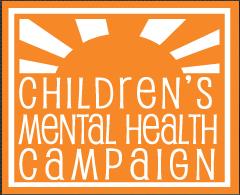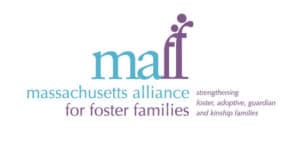Our Advocacy
MSPCC is proud of its long history of defining and shaping child welfare policy. Our direct service work with children and families informs our agenda, exposing trends in the needs and challenges that families face. MSPCC engages in public policy advocacy on issues related to child and family well-being, such as child abuse prevention, foster care, child welfare reform, mental health, and adolescent substance abuse prevention. MSPCC advocates with state leaders to ensure that the Commonwealth supports critical funding and policies to meet the needs of at-risk children and families.
The Issues:
Parent and Family Supports
Parents and caregivers are a child’s first contact to the world around them. The quality of these relationships plays a significant role in a child’s cognitive, emotional, physical, and social development. MSPCC programs and public policy initiatives are focused on families living in poverty and struggling with mental illness, substance abuse, domestic violence, and/or community violence, so that children are healthy, safe, school ready, receive nurturing supportive care, and have positive relationships with their parents or caregivers.
Children’s Mental Health
Efforts to support healthy development in children must include focused attention to children’s mental health and the prevention of adverse childhood events. Research indicates that serious symptoms of mental health issues can begin to manifest in infancy and toddlerhood. Mental health issues may be biologically-based, a reaction to an adverse childhood event such as sexual abuse, or the impact of postpartum depression. Children with behavioral health conditions and those who are victims of abuse and neglect share a troubling set of expected life outcomes, including increased rates of suicide, serious physical health conditions, substance use disorders, and early onset of sexual activity.
MSPCC targets its children’s mental health public policy goals to support proven efforts, improving capacity for early identification and treatment, and reforming practices that inhibit school success. MSPCC is a founding member and the coordinating agency of the Children’s Mental Health Campaign, whose leadership includes Boston Children’s Hospital, Parent Professional Advocacy League (PPAL), Health Care For All (HCFA) and Health Law Advocates. Through this coalition of more than 165 organizations, we champion children’s mental health.
Between 9.5% and 14.2% of children ages birth to 5 experience an emotional or behavioral disturbance
Child Sexual Abuse
Our goal is to stop sexual abuse and minimize its long-term impact on healthy development. Because people who sexually abuse children do so more easily when caregiving adults don’t know what to look for, our efforts are focused on building skills and awareness among adults and those who work in child-serving agencies. Our strategy is straightforward, to cut off access to children for pedophiles by:
- Making child and youth-serving organizations “hostile environments” for pedophiles, implementing policies and practices that identify risks and require immediate actions.
- Providing guidance to adults to help set clear parameters for acceptable interactions between children and adults and between children.
- Identifying warning signs in children and teens who may have been sexually abused and in those who may be at risk to abuse others.
Foster Families
Children enter foster care through no fault of their own. They have been abused and/or neglected and are unable to live safely with their parents. All of these children in care have experienced loss and some form of trauma causing harm to their developing brains, affecting them years later with their physical health, cognitive and academic functioning, and social emotional well being. These outcomes can be positively influenced by the type of placement, the stability of the placement and access to services and supports.
All of MSPCC works closely with the foster family association, MAFF, to advocate for children in foster care and the families who care for them. Ensuring that the daily rate of support for foster children is sufficient to meet a child’s basic needs means that income alone is not a barrier to an otherwise appropriate foster placement with kin and that DCF can recruit and retain a stable and diverse pool of foster homes throughout MA. Most children in care will be reunited with their biological parents. MSPCC works to ensure children in care have access to quality health care, including behavioral health care and educational achievement.


